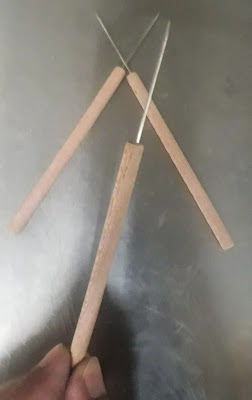“The Precision Tool: The Importance of Inoculating Needles in the Laboratory”
Inoculation needles play a crucial role in the laboratory as they enable precise sample transfer, which is essential for a variety of applications. From transferring cells and bacteria to culturing microorganisms, inoculation needles are versatile and indispensable tools in any laboratory environment.
Accuracy and Precision: Laboratory inoculation needles are designed for the highest accuracy and precision to ensure samples are transferred with consistency and reproducibility. This is important to ensure the reliability of experimental results, especially in areas such as microbiology where small variations in sample transfer can greatly affect results.
Range of Uses: Inoculating needles can be used in a variety of laboratory applications, from transferring cells and bacteria to culturing microorganisms. They are also commonly used in molecular biology, where they are used to transfer DNA samples.
Ease of Use: Laboratory inoculating needles are simple to use and take very little time to set up. It is simple to select the ideal inoculating needle for your needs because they come in a number of sizes, materials, and shapes.
Durability: Laboratory inoculating needles are designed to withstand the demands of the laboratory environment and provide long-lasting and reliable performance. They are usually made from quality materials such as stainless steel to ensure they can withstand the rigors of everyday use.
In conclusion:
In the laboratory, inoculating needles are crucial tools that provide a wealth of advantages, from accuracy and precision to use and durability. Inoculating needles are a crucial component of your laboratory equipment, regardless of whether you work in biotechnology, the biological sciences, or another industry. They offer the necessary resources for accurate and dependable results since they can transfer precise samples.

.webp)
.webp)